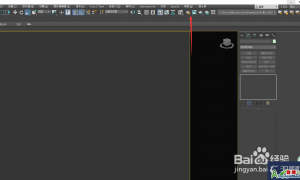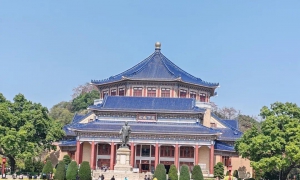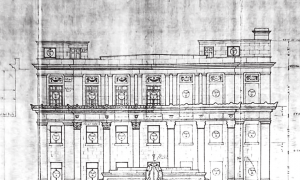|
Sergey Makhno Architects是一家现代乌克兰的建筑及室内设计工作室,由创始人Sergey Makhno创立于2 003年。工作室以乌克兰当代风格工作,这种风格将改变斯堪的纳维亚人在世界设计舞台上的形象。 Sergey Makhno Architects is a modern Ukrainian architecture and interior design studio founded by Sergey Makhno in 2003. The studio works in a Ukrainian contemporary style that will change the Scandinavian image on the world design stage. Project @ Rose House Sergey Makhno毕业于基辅国立建筑大学和莫斯科设计学院。他直观地意识到未来取决于设计,于是创立了自己同名的工作室并创造了一系列独特的物品, 用他个人设计的家具和装饰元素实现了公寓、餐厅、办公室和精品店的室内空间。Sergey Makhno的主要方向是当代极简主义和折衷主义。 Sergey Makhno graduated from The Kiev State University of Architecture and the Moscow School of Design Herealizedintuitively that the future depended on design, he founded his eponymous studio andcreated a series of unique objects, realizing the interior Spaces of apartments, restaurants, offices and boutiques with his personally designed furniture and decorative elements. Sergey Makhno's main direction is contemporary minimalism and eclecticism. Project @ Live Art Sergey Makhno经常旅行,并奔走在全世界的每个角落,他是一个极简主义和日本侘寂哲学的信徒。他创造的艺术不仅让人赏心悦目,而且让人乐在其中。他不仅设计咖啡馆、酒吧、或者是餐厅和图书馆,他不在乎设计形式,更在乎的是以人为本的概念。大到一座房子,小到每一盏灯。 Sergey Makhno travels and travels the world and is a believer in minimalism and the Japanese philosophy of wabi-sabi. The art he created was not only pleasing to the eye, but also enjoyable. He doesn't just design cafes or bars, or restaurants or libraries; he doesn't care about the form, he caresmore about the concept of putting people first. As big as a house, as small as a lamp. Project @ Oko House Sergey Makhno Architects尊重自然,与自然合作创造项目。他们选择天然材料和颜色:木材,混凝土,铜,粘土,亚麻。他们不处理其中的纹理,因为它是一种既能看到木头的温暖又能感受到石头的冷淡的东西,因此工作室善于发现周围的美并展现它。 Sergey Makhno Architects respects nature and works with it to create a project. They chose natural materials and colors: wood, concrete, copper, clay, flax. They don't deal with the texture because it's something that sees the warmth of the wood and feels the indifference of the stone, so the studio is good at finding the beauty around it and showing it. Project @ Echo House Project @ Father’s House 独家专访 Ynterview ━ Yinji:您开发的每个项目都是非常艺术的,可以分享您的设计概念吗? Yinji:Every project you design is very artistic, can youshare the design concept for us? Sergey Makhno:一个非常有趣的问题,老实说,很难明确地说出来。因为没有普遍的概念。我们的每个项目都在寻找新的解决方案,新的共生关系。为什么如此艺术地证明-它可能取决于我们的本质和我们的信念。 Sergey Makhno:A very interesting question and, honestly, it is difficult to say unequivocally. Because there is no universal concept. Each of our projects is a search for a new solution, a new symbiosis. Why it turns out so artistically -it probably depends on our essence and what we believe. 我们相信建筑,设计和艺术。一个没有另一个就不能完成。我们相信历史和根基的力量,家庭的记忆-没有他们,未来是不可能的。 We believe in architecture, design and art. One without the other cannotbe complete. We believe in history and the power of roots, the memory of thefamily - without them the future is impossible. 我们相信文化的共生和在边界创造新事物。正是由于对日本的迷恋,我才学会了以一种新的方式去爱乌克兰。当我第一次访问它并看到他们如何看待其遗产时,我意识到乌克兰文化也非常丰富,但是我们并不总是知道如何欣赏它。日本将乌克兰归还给我。我睁开了眼睛,最重要的是,我为自己出生时在家拥有的财富敞开心。这就是为什么我创建了一个乌克兰人,并通过了日本人对美感的理解。 We believe in the symbiosis of cultures and the creation of something new on the border. It was thanks to my fascination with Japan that I learned to love Ukraine in a new way. When Ifirst visited it and saw how they valued their heritage, I realized that Ukrainian culture is also extremely rich, but we do not always know how to appreciate it. Japan returned Ukraine to me. I opened my eyes and, most importantly, opened my heart to the wealth that I have from birth, at home. That's why I create a Ukrainian, passed through the prism of the Japanese perception of beauty. 我们相信功能-没有功能,设计就毫无意义。我们相信周围事物的更高意义。在这种共生中,一切都诞生了。 And we believe in the higher meanings of the things that surround us.Here in such symbiosis everything is born. Yinji:每次启动项目时,创意从哪里开始? Yinji:Wheneveryou start a project, how does creativity start? Sergey Makhno:从问题出发。为什么?为了谁?为什么?这将如何影响世界? Sergey Makhno:From questions. Why? For whom? Why? How will this affect the world? Yinji:如何保持对设计的热情? Yinji:How do you maintain a passion for design? Sergey Makhno:不断学习新事物,环顾四周,而不是专注于一种观点,这一点很重要。如果您在其他设计和建筑项目中寻求灵感-它将是复制品,仅此而已。一个重要的共生关系,新事物的诞生。旅行,读书,与团队讨论,自然,新爱好。例如,现在我沉浸在茶道的传统中。每天我都会为家人和朋友举办茶话会。它为我提供了设计和建筑方面的新功能。 Sergey Makhno:It is important to constantly learn something new, to look around, notto focus on one point of view. If you look for inspiration in other design and architectural projects - it will be a copy, no more. An important symbiosis, the birth of something new. Travel, books, discussions with the team, nature,new hobbies. For example, now I am immersed in the tradition of tea ceremonies.Every day I hold tea parties for my family and friends. And it opens upsomething new for me in design and architecture. Yinji:我们很欣赏您的贡献精神。您是如何塑造现代设计风格的? Yinji:We admire your dedication to your work. How did youform your current design style? Sergey Makhno:我们仍在进行中。我们的工作方式我希望有一天能被称为现代乌克兰风格。毕竟,在设计上没有乌克兰风格。它正在发生,这是令人难以置信的责任和有趣。 Sergey Makhno:We are still in progress. The way we work I hope to be called modernUkrainian one day. After all, there is no Ukrainian style in design. It ishappening, it is incredibly responsible and interesting. 我们的工作经历了不同的时期:对雅典派和折衷主义的迷恋,然后是日本的wabi-sabi哲学,但是我们的乌克兰文化传统始终遵循创造力的红线。这是我们开始并返回的地方。乌克兰人的古老手工艺和传统与现代技术和趋势以及世界的发展相结合-从而诞生了新的事物。我们的项目世代之间有着联系,每个世代都有其居民或来宾的独特历史。 Our work has gone through different periods: the fascination with theattic and eclecticism, then the Japanese wabi-sabi philosophy, but our Ukrainian cultural tradition has always followed the red line of creativity.This is where we started and returned. The ancient handicrafts and traditions of the Ukrainians are combined with modern technology and trends and the development of the world-and new things are born. There is a connection between generations of our projects, and each generation has a unique history of itsresidents or guests. Yinji:我们在您的作品中看到了许多来自日本园林的灵感。您如何将它们与作品结合在一起? Yinji:We have seen a lot of inspiration from Japanese gardens in your works. How do you combine them with your works? Sergey Makhno:在传统的日式花园中,我找到了和平与平衡。这是使我着迷的另一种艺术。而且,和其他项目一样,我受到鼓舞和融合。例如,在我位于基辅附近的房子旁边,我建立了一个乌克兰日式花园,日本枫树和樱花树与传统的乌克兰人形陶器和现代艺术相遇。 Sergey Makhno:In traditional Japanese gardens, I find peace and balance. This is a separate art that fascinates me. And, as in other projects, I am inspired and combined. For example, next to my house near Kyiv, I built a Ukrainian-Japanese garden, where Japanese maples and sakura trees met with traditional Ukrainian zoomorphic pottery and modern art. 有250吨的石头和一些景致,这在日本花园中是很常见的。日本人认为,石头本身必须选择躺在哪里。在我的院子里也发生了同样的事情-花园在荒地上生长了几个月,就好像没有人为干预一样。 There are 250 tons of stones and several prospects, as is customary inJapanese gardens. The Japanese believe that the stone itself must choose whereto lie. The same thing happened in my yard - the garden grew in a few months onthe site of a wasteland as if by itself, without human intervention. 在附近-乌克兰的樱桃,杏子,西红柿和黄瓜。这是新事物,以前没有。 And nearby - Ukrainian cherries, apricots, a bed of tomatoes and cucumbers. And this is something new, which was not before. Yinji:您对日本文化有何看法? Yinji:What is your opinion about Japanese culture? Sergey Makhno:日本是我最喜欢旅行,探索和探索的国家之一。正如我所说,是日本向我开放了乌克兰。通过研究日本文化,我发现了自己的-多面的,美丽的,独特的。日本是我的向导。 Sergey Makhno:Japan is one of my favorite countries to travel, explore and explore. AsI said, it was Japan that opened my Ukraine to me. Studying Japanese culture, Idiscovered my own - multifaceted, beautiful, unique. Japan is my guide. 日本人的生活方式-悠闲,体贴,周到-体现在他们现代的建筑和设计以及当地艺术家的艺术品中。我认为重要的是理解简约的建筑和雕塑,这是赋予每件作品内在美的原因。 The Japanese lifestyle - leisurely, measured and thoughtful - is manifested in their modern architecture and design, in the works of art oflocal artists. Making sense of minimalist buildings and sculptures is what Iconsider important, it is what gives each work its inner beauty. Yinji:事实上,我们在中国也有非常浓郁的园林文化。您是否考虑过在中国开展项目? Yinji:In fact, we also have a very strong garden culture inChina. Have you thought about doing projects in China? Sergey Makhno:我去过中国三次,都是大城市和偏远的自然地区。我对日本园林如此着迷的唯一原因是因为我已经带着概念代表团去过那里9次了。中国的园林文化和茶道文化也让我很亲近,它们都很特别。我希望边界很快就会开放,我们在世界各地的旅行将会更自由,我将不仅仅是再次访问中国,而是在乌克兰和中国文化的边界上建立新的东西。 Sergey Makhno:I have been to China three times, both in megacities and in remotenatural areas. The only reason why I am so fascinated by Japanese gardens isbecause I have been there with conceptual delegations 9 times already. China is also close to me in the culture of gardens, tea ceremonies, they areextraordinary. I hope that very soon the borders will be opened, we will befree in our travels around the world, and I will not just visit China again,but build something new there, on the border of Ukrainian and Chinese cultures.
| 
 cad许可管理器不起作用或未正确安装。现在
AutoCAD许可证管理器错误可通过检查服务状态、重新安装许可组件或禁用冲突软件解决
cad许可管理器不起作用或未正确安装。现在
AutoCAD许可证管理器错误可通过检查服务状态、重新安装许可组件或禁用冲突软件解决
 3Dmax怎么调出VRAY材质编辑器?
VRAY是3Dmax里面很常见的一个插件,我们想要在3Dmax不仅需要安装,还需要在对应的入口
3Dmax怎么调出VRAY材质编辑器?
VRAY是3Dmax里面很常见的一个插件,我们想要在3Dmax不仅需要安装,还需要在对应的入口
 3DMAX装完vray后怎么在渲染时调出
3Dmax经常搭配vray使用,但有的小伙伴VRay安装完了,但是渲染设置里没有,或者不知道3
3DMAX装完vray后怎么在渲染时调出
3Dmax经常搭配vray使用,但有的小伙伴VRay安装完了,但是渲染设置里没有,或者不知道3
 走进中山纪念堂,了解一代大师吕彦直
我去过中山纪念堂很多次,大多是去看公益演出。有时路过,也会被它的外观吸引,不自
走进中山纪念堂,了解一代大师吕彦直
我去过中山纪念堂很多次,大多是去看公益演出。有时路过,也会被它的外观吸引,不自
 业师和雇主眼中的吕彦直—— 一份 1928 年
编者按:
2024年是吕彦直先生(1894年7月28日-1929年3月18日)诞辰130周年。他是中
业师和雇主眼中的吕彦直—— 一份 1928 年
编者按:
2024年是吕彦直先生(1894年7月28日-1929年3月18日)诞辰130周年。他是中
 cad许可管理器不起作用或未正确安装。现在
AutoCAD许可证管理器错误可通过检查服务状态、重新安装许可组件或禁用冲突软件解决
cad许可管理器不起作用或未正确安装。现在
AutoCAD许可证管理器错误可通过检查服务状态、重新安装许可组件或禁用冲突软件解决
 3Dmax怎么调出VRAY材质编辑器?
VRAY是3Dmax里面很常见的一个插件,我们想要在3Dmax不仅需要安装,还需要在对应的入口
3Dmax怎么调出VRAY材质编辑器?
VRAY是3Dmax里面很常见的一个插件,我们想要在3Dmax不仅需要安装,还需要在对应的入口
 3DMAX装完vray后怎么在渲染时调出
3Dmax经常搭配vray使用,但有的小伙伴VRay安装完了,但是渲染设置里没有,或者不知道3
3DMAX装完vray后怎么在渲染时调出
3Dmax经常搭配vray使用,但有的小伙伴VRay安装完了,但是渲染设置里没有,或者不知道3